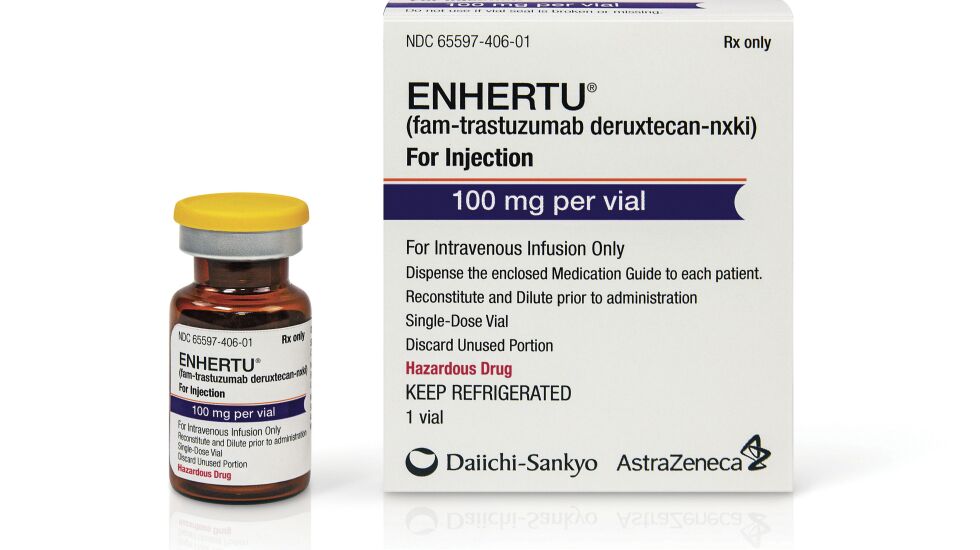
For the first time, a drug targeting a protein that drives breast cancer growth has been shown to work against tumors with very low levels of the protein.
It’s not a cure. But this latest gain for targeted cancer therapy — which was reported in Chicago at the yearly meeting of the American Society of Clinical Oncology and published by the New England Journal of Medicine — could offer new treatment possibilities to thousands of patients with advanced breast cancer.
Until now, breast cancers have been categorized as either HER2-positive — meaning the cancer cells have more of the protein than normal — or HER2-negative.
The doctors reporting the advance said it will make “HER2-low” a new category for guiding breast cancer treatment.
About half of patients with late-stage breast cancer formerly categorized as HER2-negative might actually be HER2-low and eligible for the drug.
The drug, called Enhertu, is an an antibody-chemotherapy combination that’s administered intravenously and belongs to a relatively new class of drugs called antibody-drug conjugates.
It finds and blocks the HER2 protein on cancer cells while also unloading a powerful cancer-killing chemical inside those cells.
The drug already was approved for HER2-positive breast cancer, and in April the federal Food and Drug Administration granted it “breakthrough” status for this new group of patients.
In the new study, the drug resulted in patients living longer without their cancer progressing and improved survival compared with those who were given standard chemotherapy.
The study compared Enhertu to standard chemo in about 500 patients with HER2-low breast cancer that had spread or could not be treated with surgery. The drug stopped the progress of cancer for about 10 months compared with about 51⁄2 months in the group getting regular care. The drug improved survival by about six months — from 17.5 months to 23.9 months.
“It’s a practice-changing study,” said Dr. Sylvia Adams, who directs breast cancer care at NYU Langone Health and enrolled several patients in the study. “It addresses a major unmet need for patients who have metastatic breast cancer.”
Experts said it will be important to define the HER2 gray area to make sure the right patients receive the treatment and then to monitor them closely.
The drug, which costs about $14,000 a month, can have severe complications. Three patients in the study died of a lung disease that’s a known hazard of the drug. Doctors using it are warned to make sure patients report breathing problems right away so the drug can be stopped and those patients can be treated with steroids.
Funding for the study came from Tokyo-based Daiichi Sankyo and U.K.-based AstraZeneca, which jointly developed the drug.
Patients take the drug until they no longer can tolerate it.
“A lot of people, including a lot of patients, will not have heard of HER2-low breast cancer before,” said Dr. Shanu Modi of Memorial Sloan Kettering Cancer Center in New York, who was lead author of the study. “We finally have a HER2-targeted drug that, for the first time, can target that low level of HER2 expression. This drug actually helps to define HER2-low breast cancer. It makes it, for the first time, a targetable population.”







